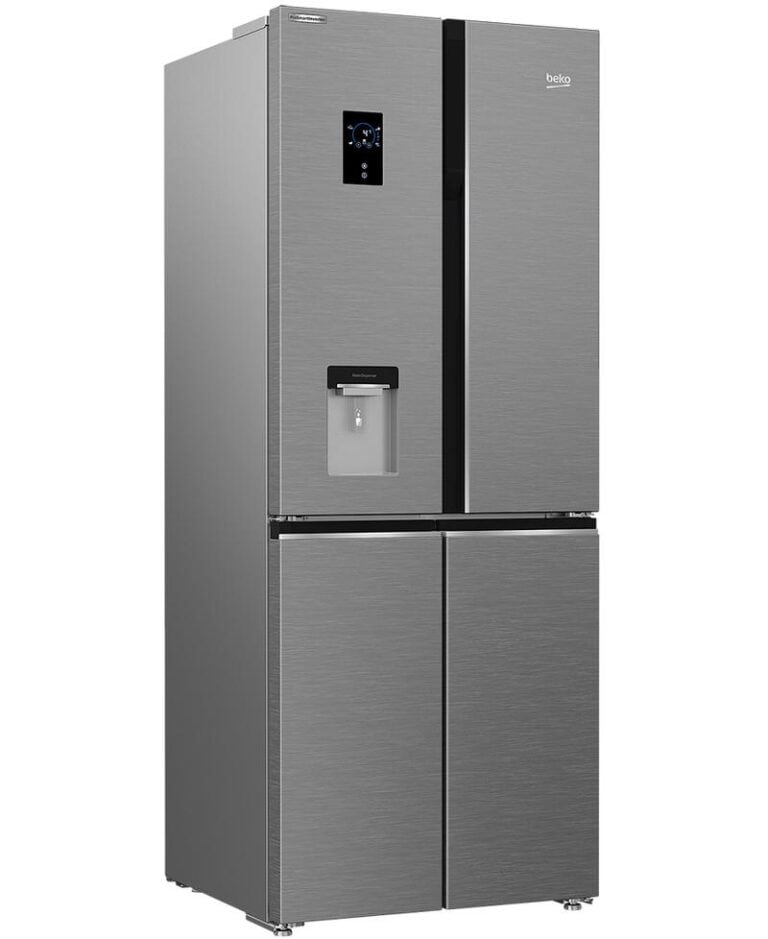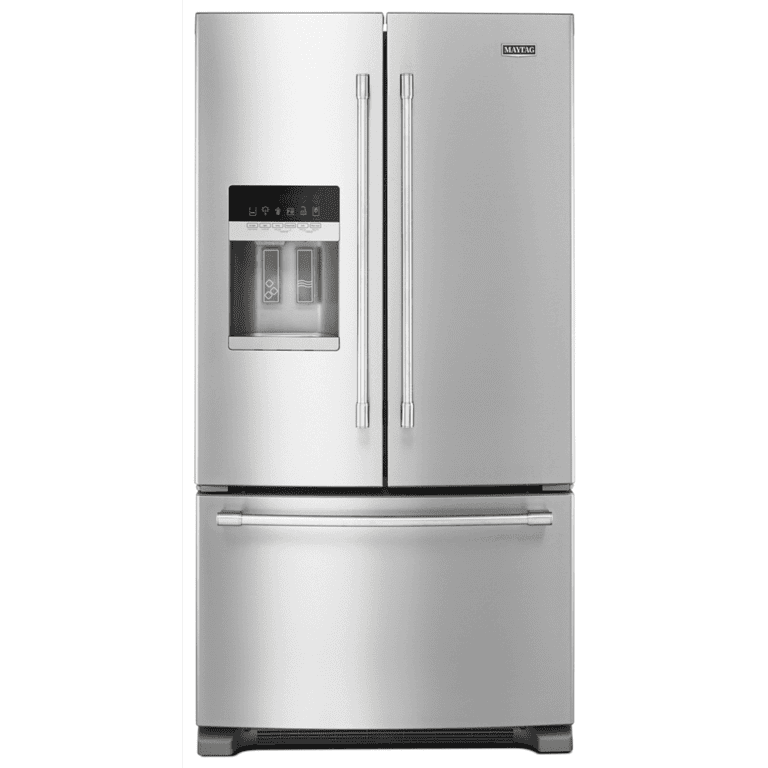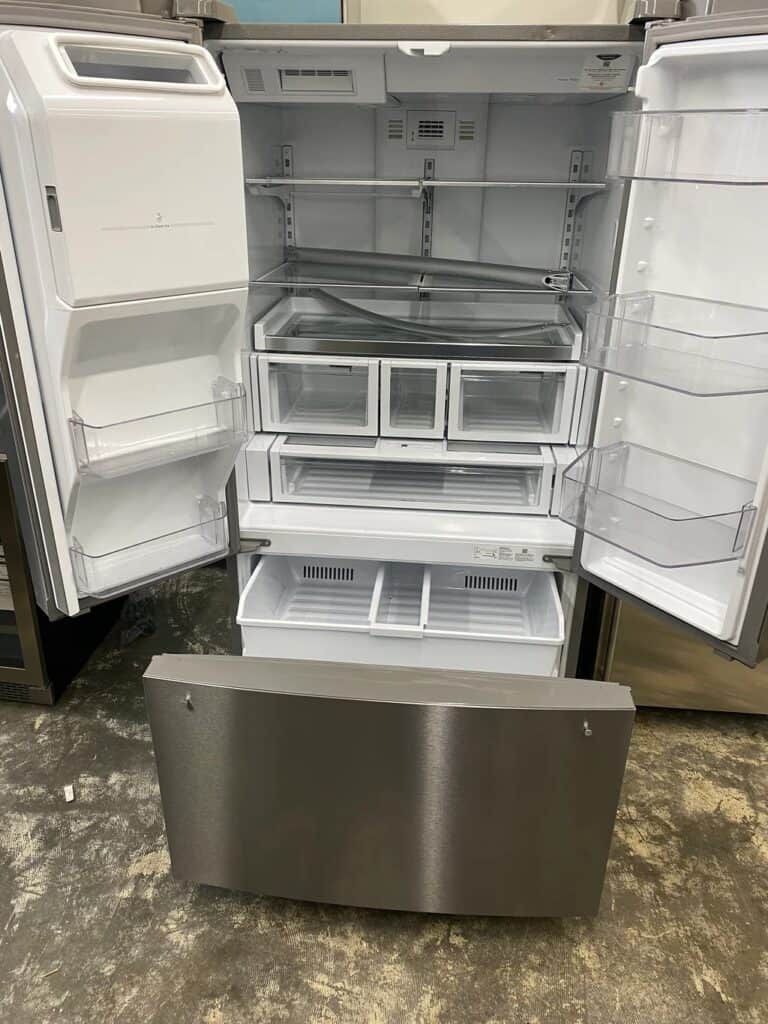Why Is My Refrigerator Smelling Like It’s Burning? Troubleshooting Tips
A burning smell in the kitchen always sends my heart racing. But when that smell wafted from my refrigerator, it felt like the universe hit the panic button. I’ve always thought of my fridge as the silent workhorse of the kitchen—chilling away without much fuss.
So when it suddenly smelled like something was about to go up in flames, I knew I needed to get to the bottom of it before things got worse. Keep reading to learn more about the potential causes and signs to look out for.
1. The Source of the Smell: Electrical Cable Issues

First things first, I knew I had to locate the source of the smell. In many cases, a burning smell from the refrigerator is linked to electrical issues. Appliances like refrigerators run on electricity. A wiring fault can cause overheating and a burning odor.
When I pulled the fridge away from the wall, I noticed that the smell seemed strongest near the power cord. I realized the cord might be damaged or there could be a problem with the outlet itself.
To avoid any risk, I immediately unplugged the fridge. It’s easy to forget that a fridge can be dangerous when it’s not functioning properly. I took a deep breath and reminded myself that safety comes first. If your fridge ever smells like it’s burning, don’t hesitate to unplug it until you figure out what’s going on.
| Related: Does a Refrigerator Need a Dedicated Circuit? |
2. Inspect The Wall Socket

When dealing with a burning smell coming from your refrigerator, it’s important to consider the wall socket it’s plugged into. Though it might not seem like an obvious culprit, an improperly wired or overloaded socket can often be the source of the issue. The socket itself may not be functioning correctly, leading to overheating and a potential burning smell.
If the socket is not wired properly, it could be causing electrical issues that affect the refrigerator’s performance and safety. Overloading is another concern; plugging too many devices into a single socket can cause it to overheat. This overloading may cause your refrigerator to trip the GFCI outlet.
This overheating can produce a burning odor. It might seem to come from the refrigerator, but it’s from the socket.
To address this, start by inspecting the wall socket for any visible damage or signs of overheating, such as scorch marks or discoloration. Ensure that the refrigerator is the only device plugged into the socket to avoid overloading. If you notice any issues, it’s crucial to have a licensed electrician check and correct the wiring or replace the socket as needed. This precaution helps ensure both your appliance’s and home’s safety.
3. Dust Build Up
Over time, dust naturally accumulates on these parts, especially if they aren’t cleaned regularly. This buildup of dust on the compressor can lead to overheating. As the dust heats up, it can even start to burn, creating a noticeable burning smell.
Addressing this issue is relatively simple. Begin by unplugging the refrigerator to ensure safety. Then, use a dust cloth to gently wipe down the compressor and the surrounding areas. This will remove the accumulated dust and prevent it from causing any further overheating or burning odors. Regular cleaning can also help maintain the efficiency of your refrigerator and extend its lifespan.
Here’s a quick look at what you should do:
| Task | Action |
| Unplug Refrigerator | To ensure safety while cleaning |
| Dust Cloth | Use to wipe down the compressor and nearby areas |
| Regular Cleaning | Helps prevent future buildup and odors |
By keeping your refrigerator clean and free of dust, you can avoid the burning smell and maintain its performance.
4. Inspect The Compressor Start Relay
To locate the compressor start relay, you’ll have to access the back of the refrigerator. Removing the back panel, you’ll find the compressor at the bottom of the appliance. Where there, you should be able to see the compressor start relay (see below).
If you see that the plastic around the start relay has melted, it’s a good sign that this was the cause of the burning smell. A compressor start relay often burns out. This is usually due to a power surge. More often, the relay has just worn out. Fortunately, they’re easy to replace yourself.
5. Compressor Overheating: A Common Culprit

As I continued investigating, another possibility came to mind—the compressor. The compressor is like the heart of the refrigerator, pumping refrigerant through the system to keep everything cool. If the compressor starts to overheat, it can give off a burning smell.
Overheating can occur if the compressor is working too hard, often because of blocked vents or condenser coils that need cleaning.
I checked the back of the fridge and found that the condenser coils were covered in dust. It’s funny how something so simple can lead to a bigger problem. I grabbed my vacuum and a brush, cleaned the coils, and made sure the vents were clear of any obstructions. This simple maintenance task can often prevent overheating and extend the life of your refrigerator.
| Read: Is It Worth Replacing a Refrigerator Compressor? |
6. The Fan Motor: A Potential Issue
While inspecting my fridge, I also considered the fan motor as a possible cause of the burning smell. The fan motor circulates air to cool the compressor and the coils. If it’s not working correctly, it can overheat and produce that alarming scent.
I noticed that the fan was running a bit slower than usual, so I decided to give it a closer look. After unplugging the fridge again, I carefully checked the motor and the fan blades for any signs of wear or obstruction.
If the fan motor seems to be the issue, you might need to replace it. I wasn’t ready to tackle that on my own, so I made a mental note to call a professional if the smell persisted.
Sometimes, it’s best to leave some repairs to the experts. This is especially true for electrical work.
7. The Refrigerator Light: An Unexpected Culprit
Believe it or not, the refrigerator light can also be a source of the burning smell. When the light stays on even after the door is closed, it can overheat, causing the plastic around it to emit a burning odor. I didn’t even think to check the light until I noticed a slight flicker when opening the door.
After turning off the fridge and checking the light bulb, I realized it had been on the verge of burning out. Replacing the bulb was a quick fix, and I felt a wave of relief knowing that something so small could have caused such a big concern. If your fridge light is acting up, it’s worth replacing it to see if that solves the problem.
Preventative Measures: Keeping Your Fridge Safe
A burning smell from my fridge taught me to maintain it. It showed me to pay attention to the little things. Here’s what I learned:
- Regular Cleaning: Keep the condenser coils clean to prevent the compressor from working overtime. Dust and debris can accumulate quickly, so make it a habit to clean them every few months.
- Check the Power Cord: Inspect the power cord for any signs of wear or damage. If you notice fraying or melting, replace the cord immediately to avoid electrical issues.
- Monitor the Temperature: Keep an eye on the fridge’s temperature settings. If the fridge is set too cold, the compressor might run constantly, leading to overheating.
- Inspect the Fan Motor: Listen for any unusual noises or changes in the fan motor’s operation. A failing motor can cause overheating and a burning smell.
- Replace the Light Bulb: If the refrigerator light seems to be malfunctioning, replace the bulb to prevent it from overheating.
When to Call a Professional
While I managed to address the issue on my own, there are times when you should definitely call in a professional. If the burning smell persists after these tips, or if you’re unsure about the repair, it’s best to leave it to the experts. Electrical problems, in particular, can be dangerous if not handled properly.
Conclusion: Trust Your Nose
At the end of the day, trust your instincts (and your nose). If your refrigerator smells like it’s burning, don’t ignore it. Unplug the appliance, investigate the possible causes, and take action to fix the issue. Whether it’s a simple cleaning job or a tough one, quick action can prevent bigger headaches later.
I learned a valuable lesson: a little attention to detail goes a long way in keeping your home safe and your appliances running smoothly. So next time you catch a whiff of something burning, don’t just brush it off—get to the root of the problem before it gets worse.




